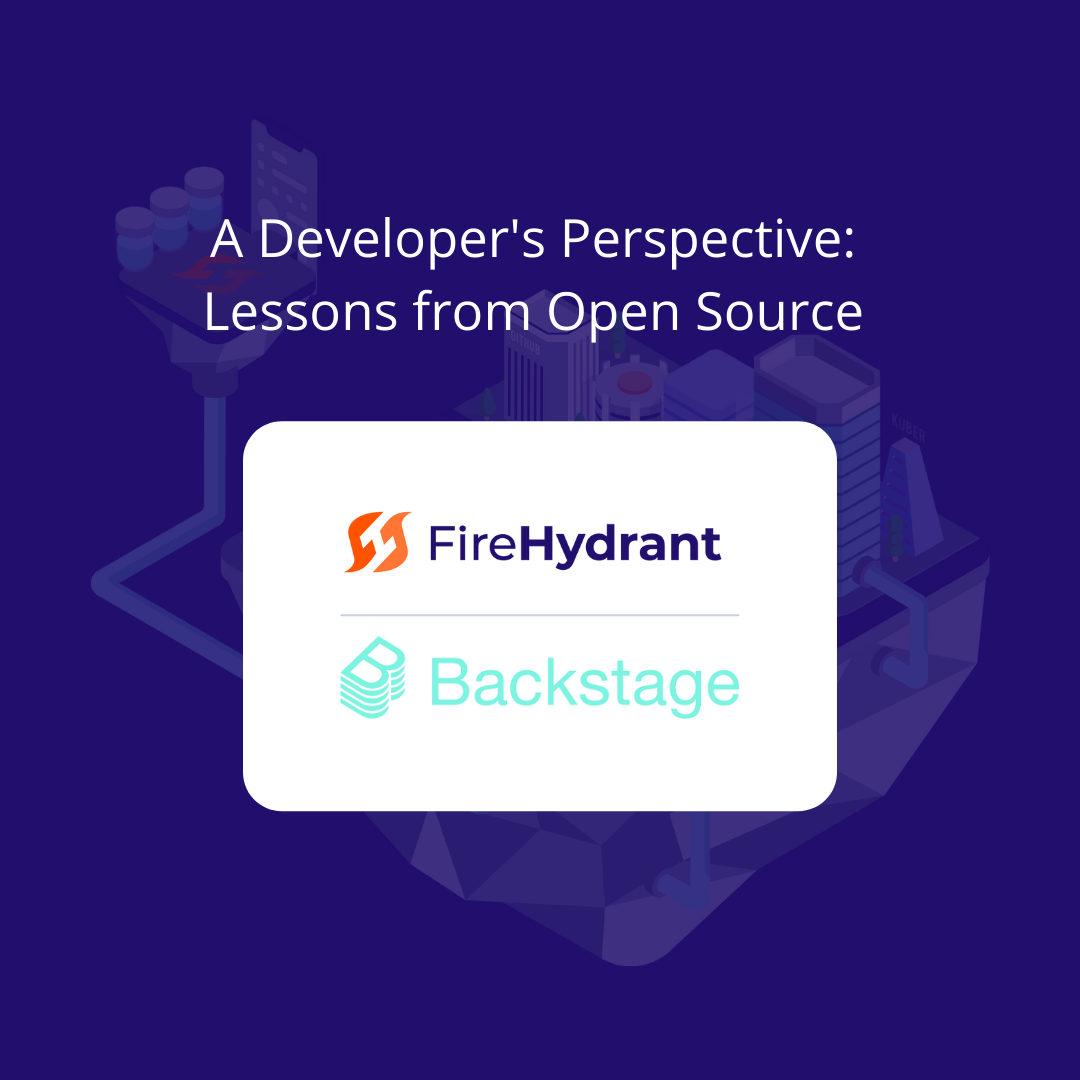A Developer's Perspective: Lessons from Open Source with FireHydrant and Backstage
Our engineer Christine Yi's perspective on contributing to an open source project with the Backstage and FireHydrant plug in and the three key values she learned

By Christine Yi on 9/14/2021

We’re proud to announce that our front end FireHydrant plug in has been open-sourced as part of Backstage, an open platform for infrastructure tooling, services, and documentation created at Spotify. We introduce FireHydrant’s incident management and analytics in Backstage, where you can quickly and efficiently manage your incidents. Teams can keep organized and easily identify information about services like recent active incidents, incident analytics service healthiness, time impacted, and MTT* (Mean Time To *) data.
Contributing to open source is an intimidating challenge with a high barrier to entry for many developers, including myself. “How do I begin? Where can I find the time? How can I keep up to date?” The Backstage and FireHydrant plugin was my first time contributing to an open source project, and after taking the plunge, I’ve learned three key values from this experience that would benefit any development team.
Transparency
No matter their level of experience or how well-established an organization is, development teams will naturally come across unexpected issues in their projects. Transparency on an organizational level is a key factor in minimizing these surprises. Open source is fundamentally transparent - an environment with open, accessible, and honest communication, where the contributors have full access to all parts of a project.
All teams can benefit from Backstage’s example of transparency of information and multiple lines of communication. Their comprehensive documentation is a well-maintained resource of guides and contribution and community standards (bonus: documentation is also open source and a great place to contribute to!). The maintainers are also very active on the official Backstage Discord server. Keeping asynchronous communication for all questions and issues completely public benefits first-timers and veterans alike. The team also hosts and publicly publishes monthly video community sessions in Zoom where the core team and contributors are all welcome to openly discuss technical updates and items.
By providing several platforms of transparent information and communication, teams like Backstage can lower the barrier of entry for contributors. Transparent organizations promote an authentic, collaborative culture.
Collaboration
Open source is influenced by every individual involved, and it’s no surprise good collaboration means we can build upon everyone’s ideas and continuously innovate. Our Backstage plugin release was a truly cross-functional, coordinated effort that intersected all of our teams at FireHydrant, including Engineering, Product, Marketing, and Sales, and of course the Backstage team and community. Like many companies these days, FireHydrant is remote, which paves the way for creative collaboration.
Actively participating in remote collaboration is an essential skill to contributing to any open source project, and a great way to practice this is through code or Pull Request reviews. Receiving clear, constructive feedback from the project maintainers is a terrific way to learn about the codebase, learn best practices, and engage in mindful conversations. For a small team, the Backstage maintainers give timely feedback with positive language, despite the regular influx of contributions coming through, attracting a growing number of contributors in a short amount of time. Good collaboration between all parties will lead to better contributions and improve the software for all of those who use it.
Community
With millions of open sourced projects today, ultimately the power of the community is what allows open source to endure. There are humans behind the code who bring different skills and insight to the table, and so all communities will have different ways of participating. It’s important to know how a project is governed or led, and what the standards and expectations are of the community in order for your contribution to be well received.
As FireHydrant’s codebase and engineering teams begin to grow, we are always improving all aspects of the development experience. Working on open source software is an excellent way to learn new things, and a great opportunity to incorporate those practices into your own organization and community.
Read more about the FireHydrant and Backstage plugin here, and learn more about how to add the FireHydrant plugin here
See FireHydrant in action
See how service catalog, incident management, and incident communications come together in a live demo.
Get a demo